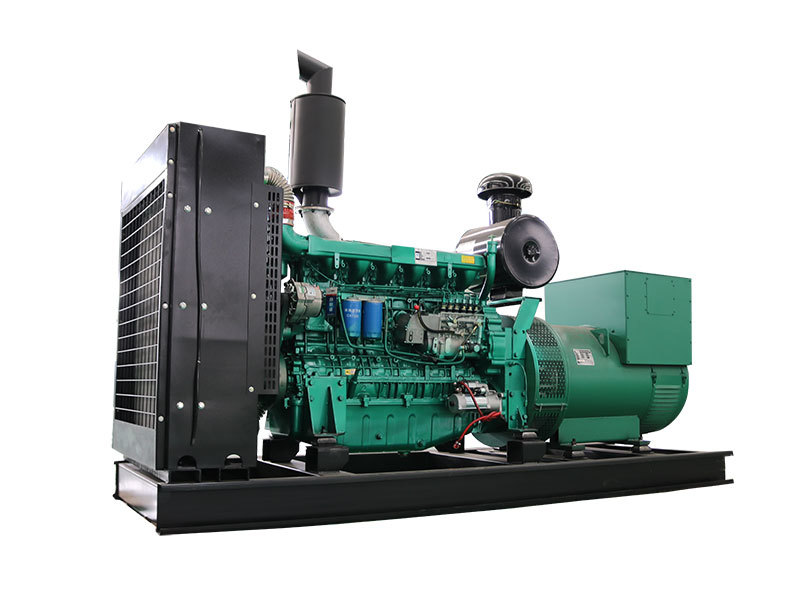The growing demand for reliable power generation, coupled with increasing environmental awareness, has brought the sustainability of various fuel sources into sharp focus. When considering generator sets, the choice between natural gas and biogas often emerges as a key decision point. Both offer distinct advantages, but their environmental and economic impacts differ significantly. Understanding these differences is crucial for making informed choices that align with long-term sustainability goals.
Natural gas, a fossil fuel, has long been touted as a cleaner alternative to coal and diesel. Its combustion produces fewer particulate emissions and greenhouse gases. This makes natural gas generators a seemingly attractive option for power generation. However, the extraction and transportation of natural gas can have significant environmental consequences, including methane leaks, habitat disruption, and water contamination. Furthermore, while cleaner than other fossil fuels, natural gas still contributes to carbon emissions, impacting long-term climate change mitigation efforts.
Biogas, on the other hand, presents a compelling case for sustainable power generation. Derived from organic matter like agricultural waste, landfill gas, and wastewater sludge, biogas represents a renewable energy source. Biogas generators effectively harness this resource, converting it into electricity and heat. This process not only reduces reliance on fossil fuels but also addresses waste management challenges, minimizing landfill burden and mitigating methane emissions – a potent greenhouse gas. The closed-loop nature of biogas production, where waste becomes a valuable resource, significantly enhances its sustainability profile.
From an economic perspective, natural gas generators often benefit from established infrastructure and readily available fuel supplies. This can translate to lower initial investment costs and simpler operational logistics. However, fluctuating natural gas prices can introduce uncertainty into long-term operating expenses. Biogas generators, while potentially requiring higher upfront investment, offer greater price stability over time. The cost of biogas feedstock can be significantly lower, especially when utilizing readily available waste streams. This can lead to predictable and potentially lower operating costs in the long run.
The environmental benefits of biogas extend beyond its renewable nature. By utilizing organic waste, biogas production actively reduces greenhouse gas emissions from decomposing organic matter in landfills. This contributes to a cleaner atmosphere and reduces the overall carbon footprint of power generation. Furthermore, the byproduct of biogas digestion, digestate, serves as a valuable fertilizer, enriching soil health and reducing the need for synthetic fertilizers. This creates a synergistic relationship between energy production and agricultural practices.
Considering the long-term implications, biogas generators offer a more sustainable pathway. As concerns about climate change intensify and regulations tighten, reliance on fossil fuels will likely become increasingly challenging. Biogas, being a renewable resource, provides a hedge against future regulatory changes and fluctuating fuel prices. Investing in biogas infrastructure today lays the groundwork for a more resilient and environmentally responsible energy future.
But what about the practical applications of these technologies? Natural gas generators are commonly used in various settings, from backup power systems for homes and businesses to large-scale power plants. Their reliability and relatively simple operation make them a versatile option. Biogas generators, while equally effective, are particularly well-suited for agricultural settings, wastewater treatment plants, and landfills. These locations often have readily available sources of organic waste, making biogas generation a highly efficient and cost-effective solution.
So, which technology is right for you? The answer depends on several factors, including available resources, project scale, and long-term sustainability goals. If access to organic waste streams is limited and initial cost is a primary concern, natural gas may be a more viable option in the short term. However, for organizations committed to long-term sustainability and seeking to minimize their environmental impact, biogas generators offer a compelling and increasingly attractive solution.
One crucial aspect to consider is the availability and reliability of biogas feedstock. Ensuring a consistent supply of organic matter is essential for the continuous operation of a biogas generator. This requires careful planning and management of the feedstock supply chain, which may involve partnerships with local farms, wastewater treatment facilities, or other sources of organic waste.
In conclusion, the choice between natural gas and biogas generator sets hinges on a careful evaluation of sustainability factors. While natural gas offers a cleaner alternative to other fossil fuels, biogas provides a truly renewable and environmentally beneficial solution. By harnessing organic waste and converting it into valuable energy, biogas generators contribute to a circular economy, reduce greenhouse gas emissions, and promote long-term environmental sustainability. Which path will you choose to power a greener future?





